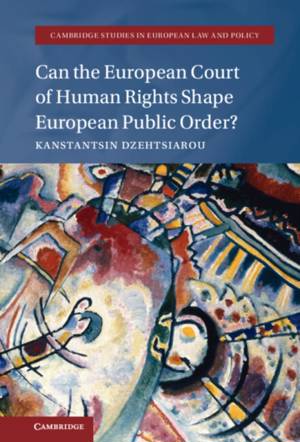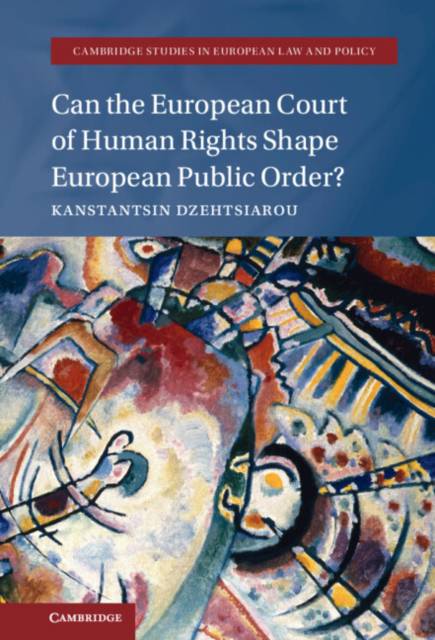
Bedankt voor het vertrouwen het afgelopen jaar! Om jou te bedanken bieden we GRATIS verzending (in België) aan op alles gedurende de hele maand januari.
- Afhalen na 1 uur in een winkel met voorraad
- In januari gratis thuislevering in België
- Ruim aanbod met 7 miljoen producten
Bedankt voor het vertrouwen het afgelopen jaar! Om jou te bedanken bieden we GRATIS verzending (in België) aan op alles gedurende de hele maand januari.
- Afhalen na 1 uur in een winkel met voorraad
- In januari gratis thuislevering in België
- Ruim aanbod met 7 miljoen producten
Zoeken
Can the European Court of Human Rights Shape European Public Order?
Kanstantsin Dzehtsiarou
€ 198,95
+ 397 punten
Omschrijving
In this book, Kanstantsin Dzehtsiarou argues that, from the legal perspective, the formula 'European public order' is excessively vague and does not have an identifiable meaning; therefore, it should not be used by the European Court of Human Rights (ECtHR) in its reasoning. However, European public order can also be understood as an analytical concept which does not require a clearly defined content. In this sense, the ECtHR can impact European public order but cannot strategically shape it. The Court's impact is a by-product of individual cases which create a feedback loop with the contracting states. European public order is influenced as a result of interaction between the Court and the contracting parties. This book uses a wide range of sources and evidence to substantiate its core arguments: from a comprehensive analysis of the Court's case law to research interviews with the judges of the ECtHR.
Specificaties
Betrokkenen
- Auteur(s):
- Uitgeverij:
Inhoud
- Aantal bladzijden:
- 252
- Taal:
- Engels
- Reeks:
Eigenschappen
- Productcode (EAN):
- 9781108497367
- Verschijningsdatum:
- 2/12/2021
- Uitvoering:
- Hardcover
- Formaat:
- Genaaid
- Afmetingen:
- 152 mm x 229 mm
- Gewicht:
- 508 g

Alleen bij Standaard Boekhandel
+ 397 punten op je klantenkaart van Standaard Boekhandel
Beoordelingen
We publiceren alleen reviews die voldoen aan de voorwaarden voor reviews. Bekijk onze voorwaarden voor reviews.









